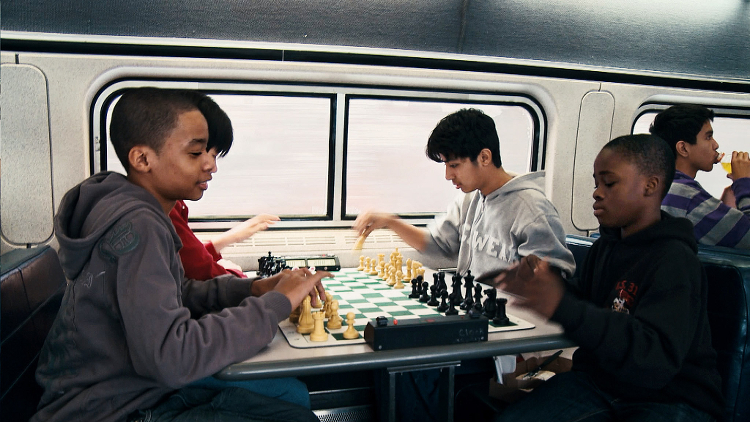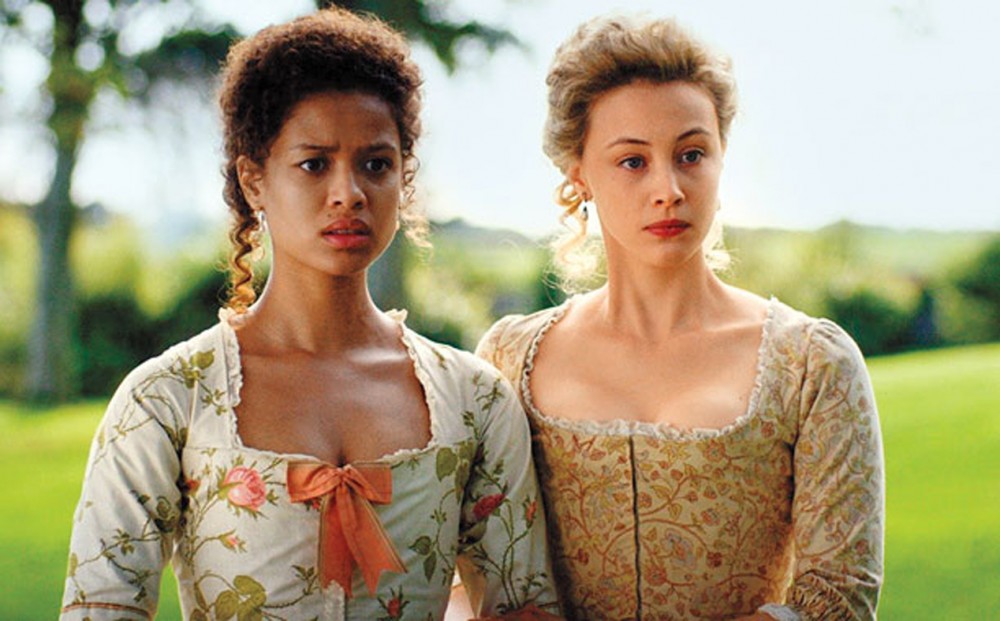Brooklyn Castle is a documentary that to many, may show the cascading effects of the 2007 financial meltdown on basic education in America. The cut on after-school programs and the budgets slashed across the public educational terrain brought untold hardships to schools that most needed help.
And to many more people, this film brings a new perspective on the poor public school student work ethic. The idea that public school students do not work as hard as students in private schools is bashed. Brooklyn Castle shows how much work and dedication pupils in American public schools are willing to put into learning and studying, even after school.
More important, Brooklyn Castle is a film that delves, albeit cautiously, into what America’s student population would look like in top educational institutions across the country if academic meritocracy were given a chance to thrive.
Even though most renowned American universities can barely boast a 1 percent African American student population, much less a respectable Hispanic proportion, affirmative action has come under a merciless microscope.
With some white students firing up the heat under admission policies in America’s top institutions, this documentary about one of America’s public schools, I.S. 318, sheds some light on how this fire might just ignite an impetus much needed for this country to move towards a common core.
A common core will lend our top schools a chance to recruit more fairly. This impartiality, though based only on academic achievement, will nevertheless lay to rest the supreme court case – Fisher v. University of Texas – in which plaintiffs Abigail Noel Fisher and Rachel Multer Michalewicz, both white women, filed suit against the University of Texas at Austin in 2008 because they were denied admission. In 2011, Rachel Michalewicz withdrew from the case, leaving Fisher as the sole plaintiff.
With a common core, admission percentages will no longer be discussed. And Ms. Fisher could no longer allege that a University with 46 percent white, 20 percent Asian, and less than 5 percent Black students as reported in 2013, had discriminated against her on the basis of her race and in a supposed violation of the Equal Protection Clause of the Fourteenth Amendment.
The successful students of a common core generation would look much like the chess masters that Brooklyn’s I.S. 318 School has come to be so proud of, and that will settle this issue. Such a common core will grant students in our top schools a diversity that can no longer be overlooked for employment and reputable roles in government. In fact it will, dare I say, remove racial bias from many of our institutions.
The students at I.S. 318 are an exceptional example of this idea of meritocracy. The students here are poor. More than 65 percent of the students at the school come from families with incomes well below the poverty line.
The film chooses to follow five students on the chess team. There’s Justus, an 11 year old who is already a chess master; Alexis, a 12 year old who believes that chess will one day grant him success to help support his family; Pobo, a 12 year old who dreams of becoming president, runs for school president, and embarks on raising funds for the slashed school budget; Patrick, an 11 year old who really wants to play chess; and Rochelle, a 13 year old who dreams about becoming a chess master.
But being under-privileged is besides the point at I.S 318. Nothing could derail the spirit with which these pupils practice and play chess. The competitive atmosphere is collegial – Pobo helping Patrick, by far the weakest player on the team, get better, and Rochelle practicing with chess master Justus to hone her skills.
Not even the budget cuts of the Recession for public schools could stop the pupils and the teachers from participating in chess tournaments around the country. Even the community rallies around its pupils, helping them raise $25,000 through a walk-a-thon to fund a chess trip.
So biting are the arguments and realities of giving students an educational system they can trust – a system in which they believe that their hard work will be rewarded. A system they are not afraid to share with everyone because they are not afraid of competition. They crave it.
It is this satisfaction, no matter the obstacles, that propels these students, their school and their community in fighting on until they have realized the fullest extents of their talents.
Brooklyn Castle makes a strong case for a common core in America’s educational system. If all suspicions of racism, favoritism, discrimination and nepotism can be eradicated from our admission process, and if a truly meritocratic system is sought, then a common core and a common admission examination – much like a chess board – can not be far from the solution.
Perhaps then, America can achieve a true integration. If that is what it really seeks.

Director: Katie Dellamaggiore
Stars: Alexis, Rochelle Ballantyne, Pobo Efekoro,John Galvin, Justus, Patrick, Fred Rubino, Elizabeth Vicary









